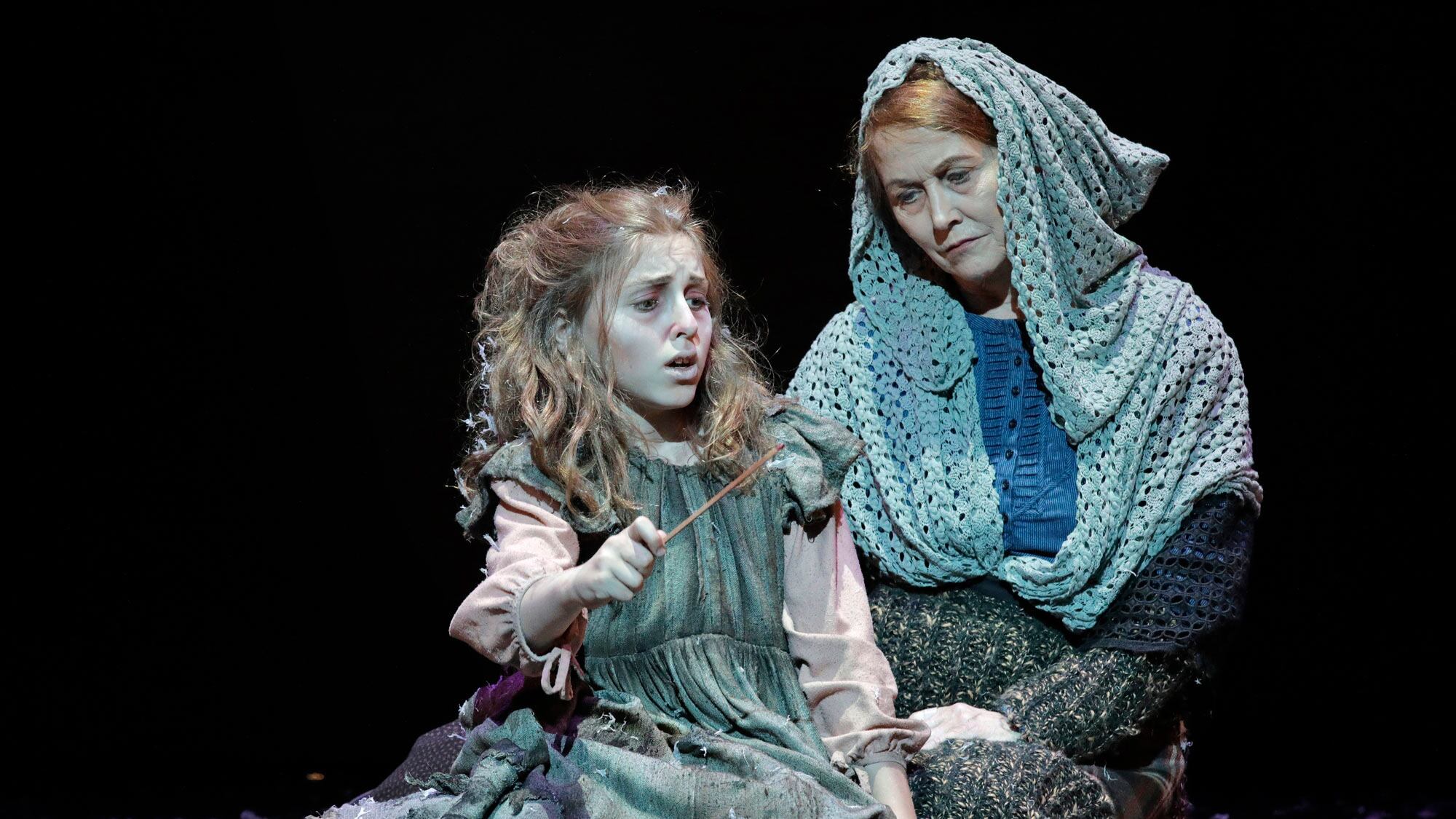Staging a David Lang opera is not an easy task. The rogue classical composer's work is visceral and highly abstract, so, to an extent, you have to let go of your desire to reach a tangible understanding of his pieces. Which makes a director's job a bit of a paradox, and Jerry Mouawad's Portland Opera directorial debut an imposing test. For the opera's last show of the season, Imago Theatre's artistic director and founder helms two of Lang's pieces, The Difficulty of Crossing a Field and The Little Match Girl Passion.
Lang's much-loved, Pulitzer prize winning Little Match Girl is almost never staged at all. The sparse, somber choral piece is adapted from a Hans Christian Andersen story about a girl who freezes to death in the streets, too afraid to return home to her abusive father after not selling any matches. The Difficulty of Crossing a Field is often staged, but it's a bizarre, confusing piece. Set in the American South, it's based on an Ambrose Bierce story about a plantation owner who vanished in plain sight while walking across a field. It'd be a mystery plot if it weren't for the fact that Lang doesn't seem interested in solving anything. Instead, Lang revels in the strangeness of the tale.
Portland Opera's production does, too. Crossing a Field is full of striking, subtle images that are a tonic to Lang's tense, fervent score in which repetitive minor keys are played by shrieking strings, and the libretto is full of rounds dense with poetic, abstract language. The set is just a low, three-tiered platform, some wooden chairs and a screen at the back of the stage that changes to deep hues of red, orange and blue. Mr. Williamson's (Allen Nause) disappearance is signaled by his wife's (Hannah S. Penn) screech, which cuts off an aria, and a spotlight that shines down on an empty, white chair off to the side of the stage. When chorus member Nicole Mitchell lets loose into her first solo of the night, the curtains slowly pull back so that the warm orange screen grows with her dynamic, rich voice. Mouawad manages to create a world that doesn't strip Lang's tale of its mystery, but instead adds to its wonder.
The set for Little Match Girl is simple. There's a large, black sheet of fabric that hangs from the floor to the ceiling in the middle of the stage. Throughout the piece, it's illuminated by a yellow backlight so ensemble dancers become like human shadow puppets behind the sheet. In the silent role of the little match girl, Max Young wears a wears an expression of utter despondency and a tattered dress that reveals legs covered in multicolored bruises. Wearing ornate Medieval robes, the vocalists hover like angels above Young.
But often, the staging seems more concerned with being clever than emotive. When the girl scrapes a match down through the air as if she's lighting it on a wall, the dancers throw fireballs out of their sleeves. At first, it's kind of cool, but it begins to feels distracting and overwrought, as do the ensemble dancers, dressed in Dickensian tattered clothes who do an Elvis-like shuffle across the stage.
Match Girl has its sublime moments. As the girl begins to freeze alone, she imagines or perhaps hallucinates that a match she lights is a Christmas tree "Larger and more beautifully decorated than the one which she had seen through the glass door at the rich merchant's." The vocalists and dancers hold candles in their hands with their arms outstretched, resembling branches, around Young. When strangers in the street find the girl dead on New Year's Day, the line "No one imagined what beautiful things she had seen" sticks out more than usual.
The most affecting moments still come from Lang's music. Near the end of the piece, the chorus briefly leave their role as otherworldly observers and sing a first-person line that's painfully human. "When I am most scared / Don't leave me." It's a line that the soloists sing in a fragmented treble that's at the very least a technical feat. The only staging is the vocalists slowly walking across the stage. It's a moment that doesn't need anything else.
SEE IT: The Difficulty of Crossing a Field and The Little Match Girl Passion is at the Newmark Theatre, 1111 SW Broadway, portlandopera.org. 7:30 pm Thursday, August 3. 7:30 pm Saturday, August 5. $35-$200.

